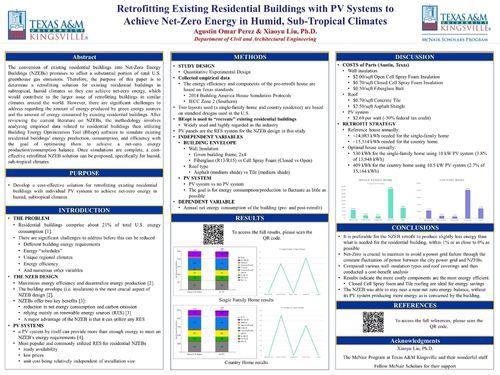The conversion of existing residential buildings into Net-Zero Energy Buildings (NZEBs) promises to offset a substantial portion of total U.S. greenhouse gas emissions. Therefore, the purpose of this paper is to determine a retrofitting solution for existing residential buildings in subtropical, humid climates so they can achieve net-zero energy, which would contribute to the larger issue of retrofitting buildings in similar climates around the world. However, there are significant challenges to address regarding the amount of energy produced by green energy sources and the amount of energy consumed by existing residential buildings. After reviewing the current literature on NZEBs, the methodology involves analyzing empirical data related to residential buildings then utilizing Building Energy Optimization Tool (BEopt) software to simulate existing residential buildings’ energy production, consumption, and efficiency with the goal of optimizing them to achieve a net-zero energy production/consumption balance. Once simulations are complete, a cost-effective retrofitted NZEB solution can be proposed, specifically for humid, sub-tropical climates.
Faculty Mentor: Dr. Xiaoyu Liu
Department of Civil and Architectural Engineering


